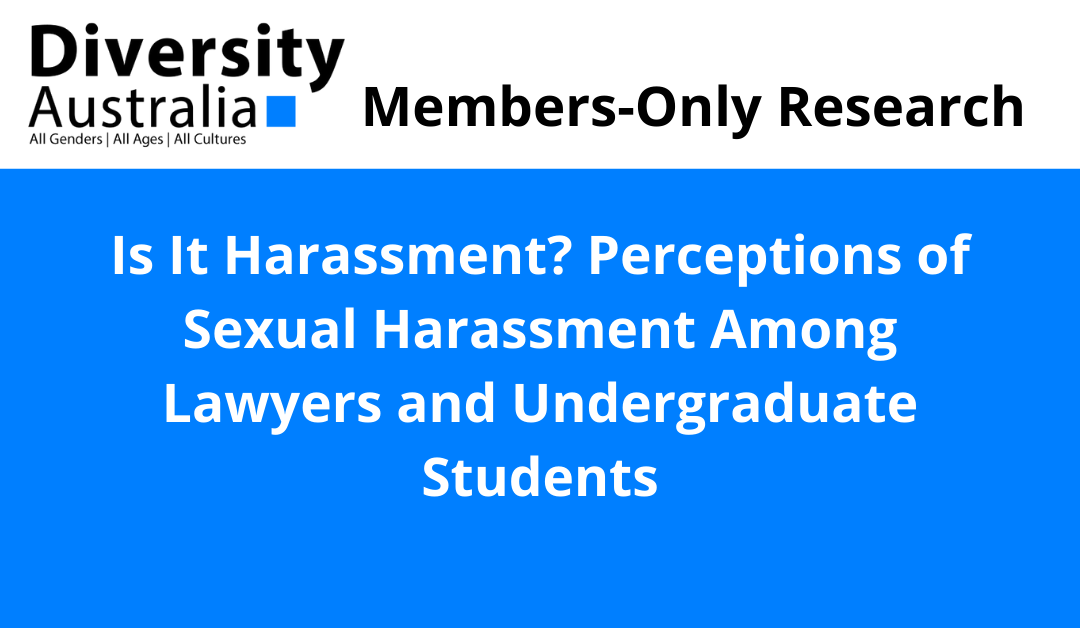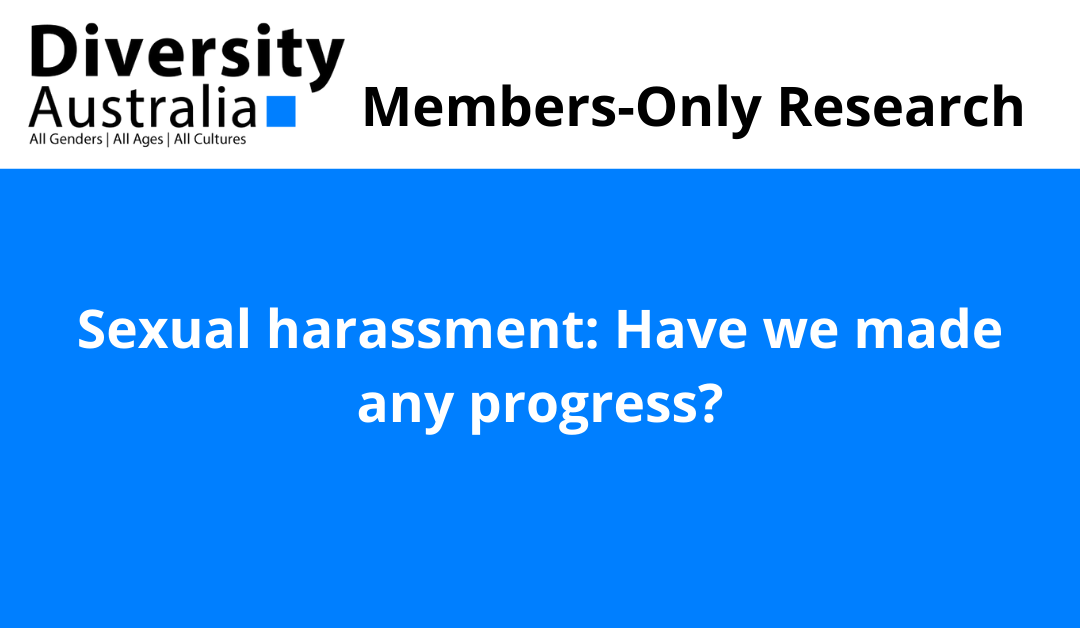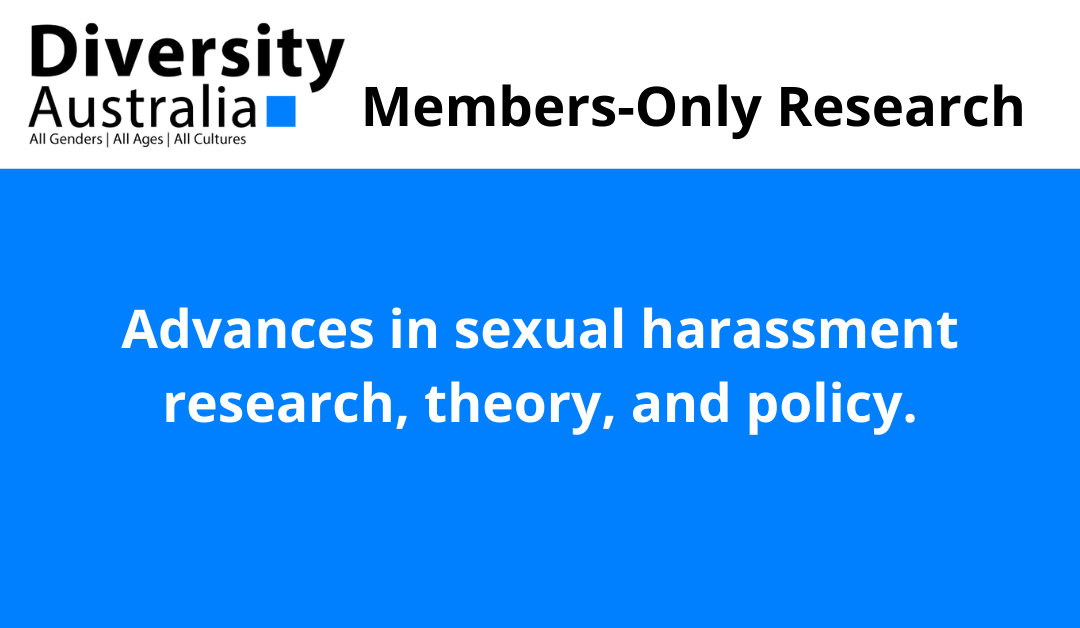
by Steven Asnicar | Mar 11, 2022 | Research
This study examined differences between lawyers (n = 91) and undergraduate students (n = 120) regarding their evaluation of behavior as sexual harassment (SH) and blame attributions toward offender and victim. The current study used a cross-sectional, comparative,...

by Steven Asnicar | Mar 11, 2022 | Research
Sexual harassment (SH) is a continuing, chronic occupational health problem in organizations and work environments. First addressed in the Journal of Occupational Health Psychology through a 1998 Special Section on Sexual Harassment, we return to this consequential...

by Steven Asnicar | Mar 10, 2022 | Research
AbstractThe study of sexual harassment is an active and exciting arena for both legal scholars and psychologists and other social scientists. Legal rulings affect the course of psychological research, and research findings in turn inform legal scholars and the courts....

by Steven Asnicar | Mar 10, 2022 | Research
A growing number of organisations recognise that flexible work arrangements are vital to the successful recruitment and retention of their employees.Flexible work arrangements can also help employers meet their obligation to avoid discrimination against employees with...

by Steven Asnicar | Mar 10, 2022 | Research
Flexibility in the workplaceIn Australia, the right to request flexible working arrangements are provided for in legislation under in the National Employment Standards (NES). These standards provide that certain categories of employees are able to make requests of...

by Steven Asnicar | Mar 9, 2022 | Research
What is flexibility? Flexible working arrangements, as defined by the Fair Work Ombudsman, are changes to the standard hours, patterns and locations of work. Flexible working arrangements are usually implemented in response to a request from an employee. While any...







